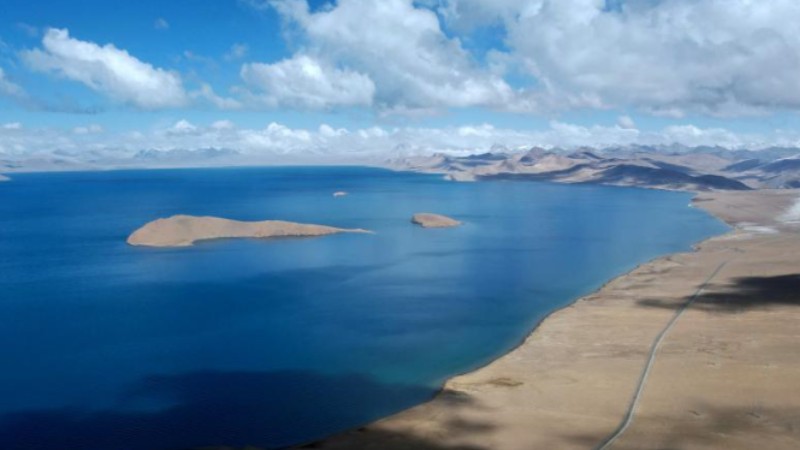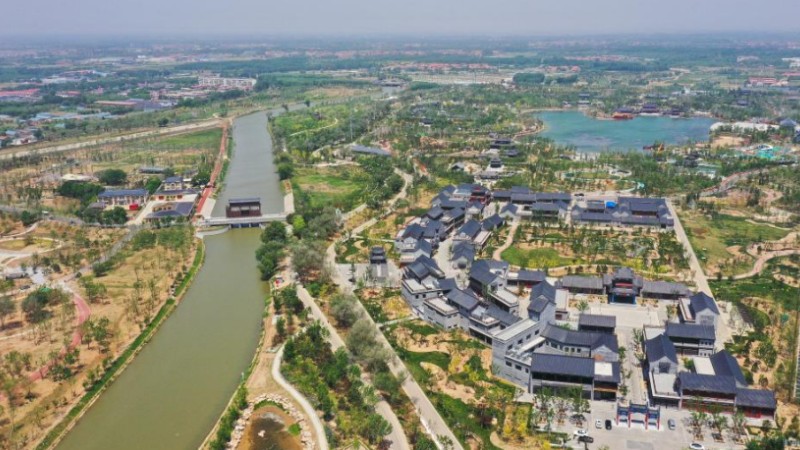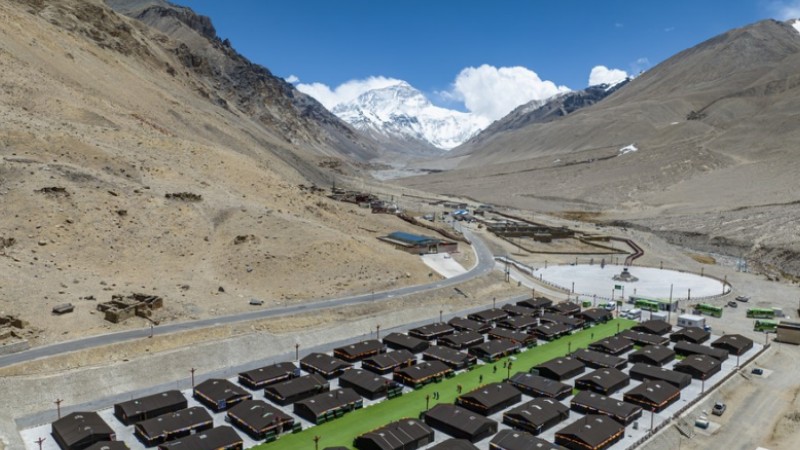Scholars from home, abroad hail Tibet's progress
BEIJING, May 24 (Xinhua) -- Scholars from home and abroad lauded the significant progress made in various aspects in southwest China's Tibet Autonomous Region during a forum held on Tuesday in Beijing.
Roland Boer, Distinguished Professor of the School of Philosophy of the Renmin University of China, underscored the pivotal role of the whole-process people's democracy in Tibet's development.
Tibet has witnessed remarkable advancements in multiple fields, including human rights, economy, culture and social development, environment protection, and infrastructure construction, based on the implementation of the rule of law and the whole-process people's democracy, said the professor from Australia.
Tuesday also marked the 72nd anniversary of the peaceful liberation of Tibet. On May 23, 1951, the 17-Article Agreement was signed by the central government and the local government of Tibet on the peaceful liberation of Tibet.
In March 1959, democratic reform was launched in Tibet and feudal serfdom was finally abolished. In September 1965, the First Session of the First People's Congress of Tibet was convened, proclaiming the founding of the Tibet Autonomous Region.
With regional ethnic autonomy established and through the socialist transformation of agriculture and animal husbandry, Tibet embarked on the road of socialism.
Wu Qingjun, vice president of the Academy of Social Sciences of Tibet Autonomous Region, highlighted the establishment and development of the system of regional ethnic autonomy in Tibet, which has provided important institutional guarantees for the whole-process people's democracy in the region, while the implementation of the whole-process people's democracy has further enriched the system of regional ethnic autonomy.
"The system of regional ethnic autonomy has effectively safeguarded and protected the democratic rights of people in the region in political, economic, cultural, social and ecological aspects, and given full play to people's democracy throughout the entire process," Wu added.
The system of people's congress, as a basic political system of China, serves as the main channel through which the people exercise their democratic rights.
Tibet has 24 deputies to the 14th National People's Congress in 2023, of whom 16 are Tibetan and other ethnic minorities. Among the 42,153 deputies to the local people's congresses at all four administrative levels in Tibet, 89.2 percent are from the Tibetan and other ethnic minorities.
Tibet's achievements in poverty reduction also gained recognition at the forum.
Tibet used to be the only provincial-level contiguous poverty-stricken region in China. The region had accomplished the historic feat of eradicating absolute poverty by the end of 2019, with 628,000 people lifted out of poverty.
Tibet's achievements in high-quality development, targeted poverty alleviation and environmental protection have delivered valuable experience and inspiration to African countries and people, said Abdilahi Ismail Abdilahi, who is from Somalia and works as a foreign language teacher in Beijing.
He also called on African countries to learn from Tibet's development in agriculture, green energy, transportation and infrastructure construction, eco-tourism, natural environment management, education and foreign trade.
Hendy Yuniarto, a lecturer from the School of Asian Studies, Beijing Foreign Studies University, said that sustainable tourism has played a crucial role in eradicating poverty in Tibet.
From a poor and backward serfdom society to a socialist society, the Chinese central government has provided Tibet with various resources in the process, including many preferential policies and tax reductions. All of these policies helped lift the region out of poverty, and also laid a solid foundation for the development of tourism, Yuniarto said.
Vikash Singh, a lecturer at a Beijing university, shared his experiences in Tibet with attendees of the forum, noting he visited two schools in Tibet and found that the education level of the two schools was very high. Students there have access to diverse subjects, including painting, dancing and singing, while teaching facilities are also very modern. All of them are vital to nurturing talent, which can eventually boost the region's development, he said.
The modernization of education and transportation, and the digital economy such as e-payment, have also benefited residents in Tibet, he added.
The one-day forum, officially called the "2023 Forum on the Development of Xizang, China," focused on Tibet's new chapter in high-quality development and human rights protection, and was jointly hosted by the State Council Information Office and the regional government of Tibet.
Officials, experts in various fields and representatives of enterprises and media organizations from home and abroad attended the event.
Photos
Related Stories
- Young faces emerge in ecological conservation quest on Qinghai-Tibet Plateau
- Digital technologies update Tibet's cultural protection work
- Tibet Story: Born to conquer the summits
- Int'l guests hail preservation of traditional culture at forum on Tibet's development
- Tibet's anti-poverty achievements lauded at high-profile forum
Copyright © 2023 People's Daily Online. All Rights Reserved.









